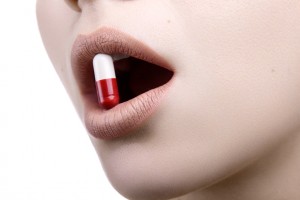How to balance hormones
Here’s how to balance hormones. Female sex hormone levels drop up to 90% during the ageing process. How to balance hormones as we age starts with recognising symptoms of hormone imbalance. We go through this here too. When we’re not feeling our normal self we use functional tests to make sure we have the right hormone reset diet as well as any supporting treatment options available.
How to use the pill
The pill is used by 3.5 mil in the UK currently – roughly one in three women of reproductive age. So are we using The Pill for birth control now more than ever? This figure is over 10 mil women in the US.
The oral contraceptive is particularly popular in the 18 to 30 age group. Usage of the Pill declines sharply after the age of 35.
Are women destined to suffer? Suffering from mood wings, muscle loss, poor sleep, memory difficulties, sexual problems? PMS, menopausal symptoms and other problems are all signs of female hormone imbalance.
This is manageable. Not the result of mutant genes destroying our sexual vitality as we age. At Susannah Makram Clinics we focus on what’s creating these imbalances – and mange the underlying problem In The Four Phases.
With gum disease existing in nearly half of this population, research investigating the relationship between the pill and gum disease provides us with a timely warning.
We need to consider the impact that oral contraception may have – not only on our dental health – but in terms of overall female hormone imbalance.
How to balance hormones
Birth Control Pills
Do birth control pills invariably lead to a female hormone imbalance? Let’s start at the start!
Research into the birth control pill’s effect on the mouth shows altered levels of salivary proteins and immune function.
This immunity acts as the mouth’s protection mechanisms against disease.
So when this immunity is lowered it can allow bad bacteria, housed in plaque on the surface of teeth and gums, to increase inflammation of the gingival tissues.
This is especially the case when bad bacteria are not removed properly by brushing and flossing. Hormonal changes that occur whilst taking the birth control pill also alter the blood supply to the gum tissues. This results in an increased inflammatory response to the presence of dental plaque.
Because gum disease doesn’t stop at your mouth, having regular dental health checks are advisable. Gum disease has known links to wider health conditions such as heart disease, diabetes and Alzheimer’s disease, that are well established.
—> Keep reading for the basics of Female Hormone Imbalance. SUBSCRIBE to our video mini series on How to Balance Hormones naturally.
Research has shown that taking the birth control pill or combined oral contraceptives for 12 months or more can increase your susceptibility to gum disease. However, this depends on the condition being present in the first place. So if you’re looking after your dental hygiene well, you most likely won’t be affected by the increased risk that the pill may introduce.
Take home advice. Have a complete dental check-up and notify your dentist that you’re considering commencing the pill. Consult with your GP on the risks and side effects of different contraception pills. If you’re diagnosed with gingivitis or gum disease, you may want to post-pone commencing the pill until your disease levels are under control. Maintain diligent oral hygiene in order to keep your gum health in top shape, with regular 6-month dental check ups.
Female hormone imbalance
Hormone imbalance –our body’s internal rhythmic responses to external stressors. When we talk about female hormone imbalance we are referring to sex hormones. These have the general role in the body of growth and reproduction. In particular, the female sex hormones oestrogen and progestin are known to influence physiological outcomes like libido, fatigue, hair loss, mood levels and brittle bones. Due to this influence on the body’s processes, it’s well known that possible side effects and risks of taking the birth control pill, which alters these hormones, can include chronic diseases. An in-depth look at side effects of the pill is here. Hormone imbalance symptoms can stem from such chronic diseases as heart disease, osteoporosis and certain types of cancer.
Why do female sex hormone levels drop up to 90% during the ageing process?
Hormone imbalance symptoms
Functional nutrition is powerful through its holistic approach. Personalised nutrition aims to achieve the highest expression of individual health, so while this is a list of symptoms, we should only look at the surface. We might ask yourself if the following plague us and if we want to do something about it.
We may have a mild or moderate or severe female hormone imbalance. So, this is only a guide. For example, the more of these health concerns or issues you are experiencing, the more you might be looking at a female home imbalance that is treatable using the right personalised nutrition.
PMS symtoms
Premenstrual syndrome. Premenstrual food cravings (especially sugar or salt). Premenstrual migraines. Monthly weight fluctuation. Oedema, swelling, puffiness, or water retention, bloated, headaches, mood swings. Tender, enlarged breasts.
Feel depressed or unable to cope with ordinary demands.
Timely backache, back pain joint or muscle pain.
Irregular cycles, heavy bleeding, or light bleeding.
Experiencing infertility.
I use birth-control pills or other hormones.
Breast cysts or lumps or fibrocystic breasts. A family history of breast, ovarian, or uterine cancer.
Uterine fibroids.
Anxiety, night sweats, hot flashes or insomnia. Heart palpitations.
Lowered sex drive.
I have dry skin, hair, and/ or vagina.
Noticing changes in memory or concentration.
Bloating or belly fat weight gain. Facial hair.
Symptoms peri menopause
Symptoms peri menopause. Hot flashes, mood swings, headaches, irregular cycles, heavy bleeding, fluid retention, breast tenderness, vaginal dryness, brain fog, muscle and joint pain, low sex drive, weight gain.



